
Alphabetical Menu
Chronological Menu
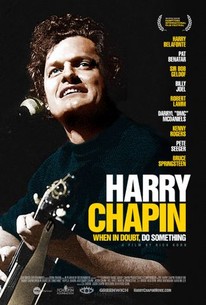 Harry Chapin: When in Doubt, Do Something is a thoroughly engaging documentary about singer-songwriter Harry Chapin, best known for the songs "Cats in the Cradle" and "Taxi." Director Rick Korn combines archival interview footage, concert footage and contemporary interviews to give you a sense of what Chapin was like as a musician and, more importantly, as a human being. Chapin wore many hats throughout his life. He was a filmmaker who directed a documentary called Legendary Champions which was nominated for an Oscar in 1968. He became a human rights activist to stop world hunger, he was a loving husband, and a father of 5 children. Through the footage of Chapin and interviews with his colleagues, like Billy Joel and Bruce Springstein, along with his family members, it's easy to grasp that he had a larger-than-life personality. His brother, Tom, says that when they were kids, they used to say that, "Two's company, Tom's a crowd." Billy Joel recalls how Chapin let him be the opening act for his concert when Joel was just starting out as a musician---an act of kindness that's rare in the dog-eat-dog world of music. Chapin's wife, Sandra, candidly explains how it took her a while to warm up to Harry when she first met him, but when she eventually did, she fell in love with him. Director Rick Korn also does a great job of showing how Chapin made a difference with his philanthropic efforts that show how compassionate and empathetic he was as a human being. He co-founded the charity organization World Hunger Year which is currently still around longer after Chapin's death in 1981 under the name of WhyHunger. His folk song "Cats in the Cradle" has been referenced in pop culture throughout the years, so it's clearly iconic. Harry Chapen deservedly received a posthumous Congressional Gold in 1987. At a running time of 1 hour and 33 minutes, Harry Chapin: When in Doubt, Do Something, is illuminating, well-edited and inspirational. It opens in select theaters and on VOD via Greenwich Entertainment. 2 Hearts 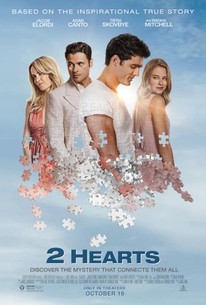 Diagnosed as a child with a lung disease, Jorge (Adan Canto), now as an adult works for his father's rum business, Bacardi. On a work-related flight, he meets and flirts with a stewardess, Leslie (Radha Mitchell), without disclosing to her about his serious health condition right away. They spend more time together and fall in love. He awaits a double lung transplant which will greatly ameliorate his health and save his life. Decades later, Chris ((Jacob Elordi), a college student, meets Sam (Tiera Skovbye) at school and they instantly fall in love. Soon tragedy strikes Chris which sends him to the hospital and causes his mom (Kari Matchett), father (Tahmoh Penikett), and girlfriend, Sam, to worry about him.
Based on a true story, 2 Hearts intercuts two love stories from different time periods before the stories end up connecting. It's very obvious from the get-go how and why the narratives will overlap because the screenplay by Veronica Hool and Robin U. Russin foreshadows it very early. Unfortunately, both of the romances fall flat because the leads lack chemistry and the dialogue they're given sounds stilted and contrived too often. Many scenes feel schmaltzy and, therefore, hackneyed. You can feel the wheels of the screenplay turning throughout the film as it just goes from point A to point B. The screenwriters failed to write the characters in a way that brings them to life. It's nice that you get to meet Chris' parents, but they're one dimensional, forgettable characters. It seems as though all the characters are on screen just to move the plot forward without ever being complex enough to care about on a human level. The filmmakers also don't trust the audience's emotions, intelligence or imagination enough and rely on narration that adds some wisdom in a very tacked-on and preachy way. Why spoon-feed the audience if they're smart enough to make their own conclusions of what aphorisms to take away from the film? The third act tries very hard to milk your tear ducts, but even that doesn't help to make the film as moving as it wants to be. Love Story and The Notebook are better examples of love stories that work because you're invested in the characters' lives and the leads actually have chemistry. Everything about the production values from lighting to the editing and cinematography coupled with the shallowness of its sophomoric script makes 2 Hearts feel like a Lifetime movie-of-the-week. It's so saccharine that it might end up giving you a cavity. 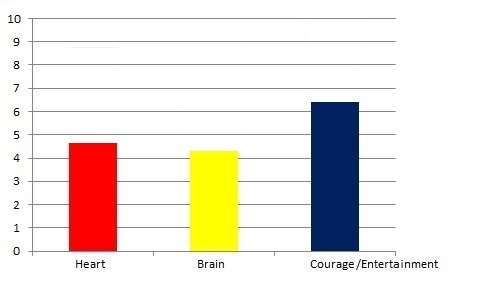 Honest Thief 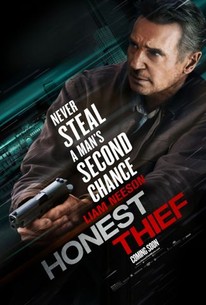 Tom (Liam Neeson), a professional bank robber dubbed by the media as the "In and Out Bandit," wants to quit his life of crime and settle down with Annie (Kate Walsh), a woman who manages a storage facility where he stored his $9 million dollars. He contacts FBI agents, Sam Baker (Robert Patrick) and Agent Meyers (Jeffrey Donovan), while claiming that he's the wanted bank robber and that he wants to return the money he stole in exchange for a lighter sentence. The FBI don't believe him because there are many other people who called claiming to be the In and Out Bandit, so they dispatch Agents Nivens (Jai Courtney) and Hall (Anthony Ramos) to interview Tom at a hotel room, but Agent Nivens shoots him dead. What transpires afterward won't be described here so as not to spoil plot's surprises. Although Honest Thief has a plot with many twists and turns, some of which are more surprising than others, none of it leads it to any palpable suspense because it's too preposterous and increasingly implausible. Audiences can suspend their disbelief, but only up to a point and only if they're not supposed to take the movie seriously. Writer/director Mark Williams and co-writer Steve Allrich expect the audience to care about Tom's crisis of conscience and root for him to live happily ever after with the new love of his life, but they forgot to ground the movie in anything that resembles realism. If Honest Thief were to take place on another planet, it would make a lot more sense perhaps. If they believe that audiences could buy the fact that Tom can so easily evade the FBI and even rent a hotel room while trying to prove that he didn't kill Agent Baker, they undermine the audience's intelligence.
Even when it comes to visceral entertainment, Honest Thief disappoints. A long cat and mouse chase during the second act kicks up the action that you expect from a Liam Neeson movie, but the action sequences aren't really that spectacular or thrilling. The only thing that keeps you in suspense is to try to figure out when the next plot hole will arise. Plot hole seekers will not be disappointed. Some of the dialogue between Tom and Annie sounds so awkward that it's cringe-inducing and unintentionally funny. The screenwriters also do a subpar job at incorporating exposition. Case in point: when Tom goes on a long speech to explain what motivated him to start a life of crime to begin with. Why would Annie want to get involved with such a troublemaker who doesn't understand the concept of the boundaries set by the law? She seems like someone who would be beneath that. Tom also lies to her about who he really is, so when he confesses to her the truth, he makes it all about himself, so it's hard to believe that he's truly remorseful. He seems like a selfish, delusional narcissist who tries to justify and excuse his wrongdoing when he really has no excuse. Why should he deserve to get a light sentence for his crimes? Does he think that he's entitled and superior? While it's great that he acknowledges his actions, he's clearly incapable of acknowledging the consequences of his actions. Why should she trust him from that point on? If the filmmakers expect audiences to buy the toxic relationship between Tom and Annie, they should think again because it's a relationship that's doomed from the start. The ending, which won't be spoiled here, confirms that Honest Thief is essentially a very dull, dark and asinine fairy tale that has completely lost its grip on reality and human nature. There are more holes in its plot than there are in Swiss cheese. 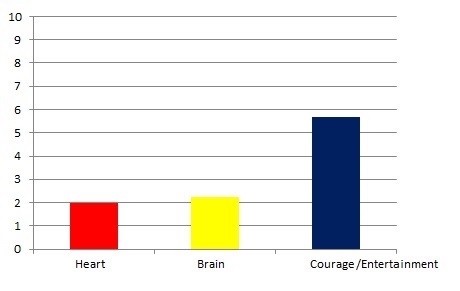 The Kid Detective 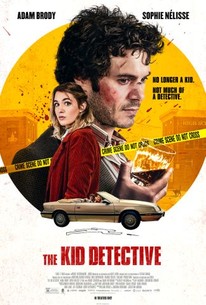 Abe Applebaum (Adam Brody) has been solving crimes as a private investigator in his small town since he was 12-year-olds. Now at the age of 32, he still hasn't made it into the big leagues by solving a big case, and he regrets not being able to find who kidnapped the mayor's daughter, Gracie (Kaitlyn Chalmers-Rizzato) years ago. His luck changes when he meets Caroline (Sophie Nélisse), a teenager who comes to his office to ask him to help her investigate the murder of her boyfriend. He agrees to take the case for free and lets her tag along with him as he investigates. His mom (Wendy Crewson), dad (Jonathan Whittaker), secretary, Lucy (Sarah Sutherland) and even his roommate, have yet to see him as a professional private detective, so now's the chance for him to prove them wrong. The Kid Detective combines an intriguing whodunit crime drama with dark comedy and coming-of-age drama which creates an amalgam that works for the most part because it remains character-driven and, like Abe himself, unconventional. The screenplay by writer/director Evan Morgan has some witty dialogue and awkwardly funny scenes, but there's a darker, more profound element to the film that gradually rises to the surface as Abe gets deeper and deeper into his investigation. There are essentially two films in one going on here: Abe's journey to find the murder and Abe's emotional journey as he struggles with his self worth and depression. He has to grow up, but to do that he must be put through the test. Although he makes mistakes and follows red herrings that lead him nowhere, he doesn't give up. In one very revealing scene, he discovers that his parents have been following him and Caroline with their car, but he's too ashamed to admit the truth to Caroline, so he lies to her. Another scene that works well is when he interviews the parents of Caroline's boyfriend to ask them about why he found drugs in his school locker. The father angrily denies that his son was involved with drugs and questions Abe's professionalism. Meanwhile, the mother remains silent, but you can sense that she might know something and have something important to say to Tom, or perhaps not. The Kid Detective is often unpredictable and not always clear about what's really going on, but, to be fair it's okay for the audience to be confused because Tom feels confused as well, so they can easily relate to him. Bravo to Evan Morgan for grasping human nature and for providing the space for it through the screenplay. When it comes to exposition, Morgan excels for most of the film, except for the third act that suffers from a lengthy scene with excessive, convoluted exposition all at once which briefly derails the film's momentum. It's a shocking, unexpected and disturbing scene that's even more shocking when juxtaposed with the rest of the film that didn't quite prepare you for it. Tell No One also suffered from a similar lengthy expositional scene toward the end when the villain candidly explains himself to the protagonist in great detail. The villain in The Kid Detective, without spoiling anything, is not a one-dimensional villain and has complexities that humanize him. The final shot is among the most bold, honest, surprising and unconventional endings in recent memory. It's also a testament to the fact that Evan Morgan excels in grounding the film in humanism, a truly special effect. 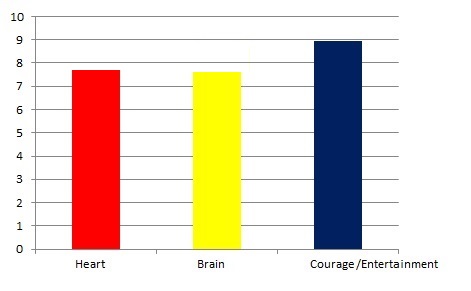 Love and Monsters 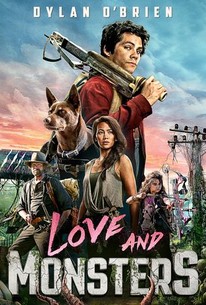 In the post-apocalypse, 24-year-old Joel Dawson (Dylan O’Brien) lives in an underground bunker with fellow survivors after an asteroid hit Earth 7 years ago. The chemicals from the missiles that struck the asteroid fell down to Earth and caused cold-blooded animals to mutate into giant creatures. His parents died, but his girlfriend, Aimee (Jessica Henwick), survived and got separated from him. He decides to travel 85 miles to visit her colony and reunite with her. Along the way, a dog he names Boy joins him and he meets a father and daughter team, Clyde (Michael Rooker) and Minnow (Ariana Greenblatt), who teach him essential fighting skills to help him defeat the giant creatures. Love and Monsters is a rousing sci-fi adventure with just the right balance of comedy, action and drama. The screenplay by Brian Duffield and Matthew Robinson could have easily turned the movie into a mind-numbing, tedious, action-packed video game, but instead they infuse it with a heartfelt love story and a protagonist who goes through innate struggles like the death of his parents. He pines for his girlfriend whom he briefly communicates via radio which motivates him to keep going. He develops a poignant friendship with the dog, Boy, that saves his life from a giant killer frog. The scenes with Cylde and Minnow are among the best ones in the movie because of their amusing, funny banter and the compassion that Clyde displays thoward Joel when they sit down by a campfire to talk about Joel's past. It's a moment that serves as exposition, but also, more importantly, as a catharsis for Joel because he gets to express his buried feelings and talk about his trauma. Cylde is like a surrogate father to him, so it's too bad that they don't meet again or keep in touch. There's also a moving scene with an injured Robot that Joel finds in an abandoned home. Once Joel arrives at Aimee's colony, Love and Monsters takes an unexpected turn that adds yet another layer of complexity and depth while maintaining suspense. Pay close attention to the details in the first hour because they'll become important later on. On a visceral, aesthetical level, Love and Monsters is exciting and even a bit scary, especially if you're not a huge fan of bugs. Fortunately, the filmmakers do not include spiders as one of mutated creatures---that would've been too scary like in the giant spiders in The Hobbit: The Desolation of Smaug. The CGI looks impressive and the action feels thrilling without becoming exhausting. There are just enough quiet moments to allow the movie and the audience to breathe a little. Moreover, kudos to the casting directors for choosing Dylan O'Brien as Joel because he has the acting chops to handle both the physical and emotional aspects of his role convincingly. He's a great actor much like Hailee Steinfeld was in the surprisingly entertaining and moving blockbuster Bumblebee. As Francois Truffaut once wisely noted, a great film should have a perfect balance between Truth and Spectacle. Love and Monsters has plenty of Spectacle and offers just enough Truth to be a very satisfying and rewarding action adventure that will hopefully have sequels. 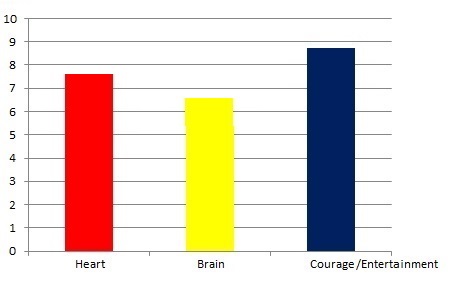 Martin Eden 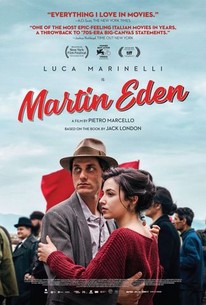 Martin Eden (Luca Marinelli), a sailor from the lower class of society, flirts with a waitress, Margherita (Denise Sardisco) before meeting and falling in love with Elena (Jessica Cressy), a woman from a wealthy family. She's cultured and educated; he's uneducated and not very cultured either. Elena ignites a spark inside him when she bluntly states that he should continue his education. He pursues his passion for writing and educates himself by reading book after book while writing letters to her. Success doesn't come right away to him, but when it does, he becomes mentally unstable. A fellow writer, Russ Brissenden (Carlo Cecchi), serves as his mentor who guides him along the way with his insights. Martin's hot temper and mental instability leads to a rift between him and Elena which comes to a breaking point during a dinner with her family. Martin Eden begins as an emotionally engrossing, captivating love story, but becomes less emotionally engrossing during the weak second half. The screenplay by writer/director Pietro Marcello and co-writer Maurizio Braucci, based on the novel by Jack London, does a great job of getting inside the mind of Martin Eden as he courts Elena and struggles to get his writings published. His impoverished life juxtaposed with his new taste of the upper class life makes for a very provocative plot at least for the first hour. Elena and Martin are polar opposites not only because of their position in the class system of society, but also in their personality. He's arrogant, confident and very outspoken while she seems more shy, graceful and polite. It's during the flash forward to Martin's later years of success when then film because less and less moving as Martin becomes a bit crazy in his behavior and alienates the people around him. He becomes emotionally distant from other characters as well as the audience on top of that. There's not nearly enough nuance during those scenes as it becomes increasingly obvious that Martin's behavior is toxic and, worst of all, self-destructive. He's an interesting character whose downfall deserves to be explored with much more emotional and intellectual depth. Moreover, the flashbacks to Martin's impoverished childhood are handled in a clunky, lazy way that distracts from the narrative momentum. On a positive note, Luza Marinelli gives an emotionally resonant performance and tries his best to rise above the less powerful second half of the film. Jessica Cressy is also superb as Elena, very well cast and alluring. The cinematography along with the scenery add plenty of style and eye-candy. The same can be said for the costume design and the well-chosen use of music. All of those elements come together to try to make the film feel sweeping and cinematic, but they're undermined by a screenplay that takes a nosedive once it goes into darker territory and introduces Martin's complexities to the audience in a superficial way. At a running time of 2 hours and 9 minutes, Martin Eden has plenty of style, but ultimately lacks enough substance and substance does, thereby leaving audiences feeling somewhat cold and wishing that they could have gotten know Martin a lot more profoundly during his later years. Martin begins the film as a human being to the audience, but ends up as a stranger to them. 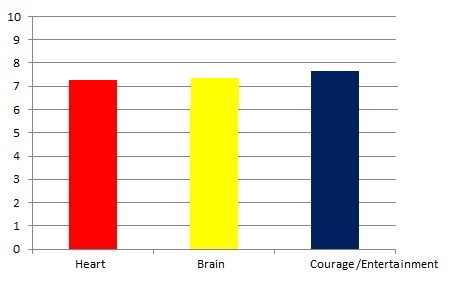 Shithouse 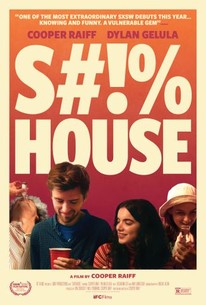 Alex (Cooper Raiff) has just started his freshman year at college and lives in a dorm with his roommate, Sam (Logan Miller). He suffers from homesickness, so he frequently calls his mother (Amy Landecker) as though they were close friends. One night, he attends a party at a fraternity called Shithouse where he meets and flirts with his RA, Maggie (Dylan Gelula). After drinking some wine and getting physically intimate with her in her dorm room, they converse with each other. He convinces her to come with him to retrieve her deceased pet turtle from a garbage bin and to give it a proper burial. Throughout the course of the night, they form a deep connection, or at least he thinks that they're connecting. She even opens up to him about her dysfunctional family. The next morning, she kicks him out of her room and then ghosts him after he sends her multiple messages on Instagram, but he refuses to be ignored. Writer/director Cooper Raiff has a knack for writing dialogue that sounds organic while avoiding schmaltz and melodrama. Alex and Maggie are both flawed characters which makes them all the more human and interesting. He's sweet, yet naive, emotionally immature, insecure and needy. She's emotionally immature, reckless and inconsiderate. Case in point: she has a fake ID and engages in underage drinking despite being an RA who's supposed to be a good role model. Raiff does a great job of bringing Alex and Maggie to life thereby allowing you to be fully immersed in their lives, want them to be happy and to end up together. Both characters have a lot to learn about life and relationships, and it's fascinating to watch them learn and grow as they navigate through their complicated set of emotions. It's also interesting to watch how the relationship between Alex and his mother evolves. She seems toxic at first, but at least she's accountable when it comes to her toxic behavior because she admits that it's unhealthy for her son to be calling her so often. He's lucky to have a mother who's capable of changing and doing what's right for his mental and emotional wellbeing. Much like the films of Eric Rohmer and Richard Linklater, Shithouse isn't heavy on plot and more about capturing the feelings contained within the threadbare plot. As Hitchcock once observed, some films are a slice of life while others are a slice of cake. Shithouse is predominantly a slice-of-life, but it's also a slice-of-cake at times--it's basically a "life cake." It's much more profound, funny and moving than the overrated, unfunny and pretentious Superbad and Booksmart. It's also slightly reminscent of some of John Hughes' classic coming-of-age movies and Rob Reiner's sweet, funny and underrated romantic dramedy, The Sure Thing. The comic relief doesn't rely on lowbrow humor with the exception of Alex's roommate shitting his pants after a drunk night and then cracks jokes about it during his stand-up comedy routine in front of his schoolmates. Does every frat movie have to have gross-out humor by default? At least Raiff doesn't include more of that kind of potty humor. Fortunately, the performances feel just as naturalistic as the screenplay with no one over-acting or under-acting. There's also just the right amount of nuance and exposition without narration or flashbacks, so Raiff avoids treating the audience like they're dumb. He trusts their emotions, imagination, intelligence for the most part, except for the last few minutes of the film that tie things up a little too neatly. He should be commended, though, for his use a symbolism, i.e. the burial of the turtle which is just as provocative as the symbolism in Harold and Maude when Harold and Maude transplanted the asmthatic tree in the forest. At a running time of 1 hour and 42 minutes, Shithouse is a genuinely engrossing, tender and wise slice-of-life. 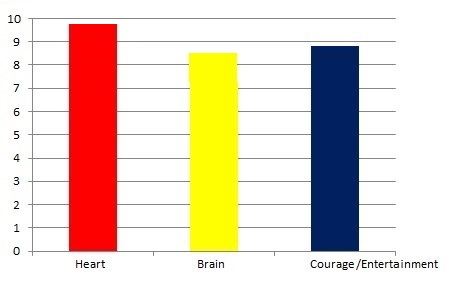 |